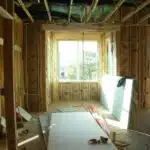When it comes to home renovation, there are many factors that can impact the success of the project. One key aspect is organization. A well-organized renovation can save time, money and reduce stress associated with the process.
As a home renovation expert, I have seen firsthand the importance of organizing a renovation from start to finish. By taking the time to plan and prepare, homeowners can ensure that their renovation runs smoothly and meets their desired outcome. In this article, we will explore some tips and strategies for organizing your next home renovation project. Whether you are planning a small update or a major overhaul, these tips will help you stay on track and achieve your goals with ease.
Setting Your Renovation Goals
Setting realistic, measurable goals is the first step in organizing your home renovation. These goals will serve as a guide throughout the entire renovation process and help you stay on track with your priorities. It’s important to take the time to identify key renovation areas and define priorities before setting your goals.
When setting your goals, it’s crucial to be realistic about what you can accomplish within your budget and timeline. This means taking into account any potential setbacks or unforeseen circumstances that may arise during the renovation process. By setting achievable goals, you’ll be able to measure progress and make adjustments along the way.
Identifying key renovation areas and defining priorities will also help you determine where to focus your time, energy, and resources. Think about which rooms or areas of your home are most in need of renovations and prioritize accordingly. This will ensure that you’re making the most efficient use of your budget and achieving the results you desire.
With realistic, measurable goals in place and key renovation areas defined, it’s time to move on to defining your budget. By establishing a clear budget from the outset, you’ll have a better understanding of what’s feasible for your renovation project and be able to make informed decisions throughout the process.
Defining Your Budget
Before embarking on a home renovation project, it is essential to define your budget. Tips for budgeting include determining the scope of the project, figuring out how much you can realistically afford, and setting aside extra funds for unexpected expenses. Once you have a clear idea of your budget, you can start looking for affordable options.
The first step in defining your budget is to determine the scope of the project. This involves deciding which areas of your home you want to renovate and what changes you want to make. For example, if you are planning a kitchen remodel, do you want to replace all of the cabinets or just update the hardware? Once you have a clear idea of what needs to be done, you can start estimating costs.
Figuring out how much you can realistically afford is another important part of defining your budget. Take a look at your finances and decide how much money you can comfortably allocate towards the renovation project without causing financial strain. It’s also important to set aside extra funds for unexpected expenses that may arise during the renovation process.
To find affordable options, consider shopping around for materials and labor. Look for sales or discounts on items like flooring, fixtures, and appliances. You may also be able to save money by doing some of the work yourself or hiring a less expensive contractor. By being diligent about finding affordable options, you can stay within your budget while still achieving your renovation goals.
Transition: Now that you have defined your budget and found some affordable options, it’s time to establish a timeline for your home renovation project.
Establishing A Timeline
Creating a schedule for your home renovation is crucial in ensuring that the project runs smoothly and is completed within the intended timeline. The first step in establishing a timeline is to determine the scope of your renovation project. This includes identifying what you want to achieve, how much money you are willing to spend, and how long you can afford to have contractors working in your home.
Once you have established the scope of your renovation project, it’s time to create a detailed timeline that outlines every step of the process. This should include everything from ordering materials and hiring contractors to completing specific tasks such as painting or installing new fixtures. Allocating resources such as time, labor, and budget will help ensure that each task is completed on schedule and within budget.
Creating a schedule can be overwhelming for some homeowners, especially if they have never undergone a major renovation before. However, with proper planning and organization, it can be an enjoyable experience. By breaking down each task into smaller steps and scheduling them accordingly, homeowners can avoid feeling overwhelmed while also ensuring that their renovations are completed on time and within budget. Next up we will discuss researching and hiring contractors who will work on your home renovation project.
| Positive Emotions | Negative Emotions |
|---|---|
| Excited | Nervous |
| Proud | Overwhelmed |
| Accomplished | Frustrated |
| Satisfied | Stressed |
As you establish a timeline for your home renovation project, it’s important to consider the emotions that come along with it. Homeowners often experience positive emotions such as excitement or pride when they see their vision coming to life. However, negative emotions such as nervousness or frustration may also arise due to unexpected setbacks or delays. By proactively addressing these emotions through careful planning and open communication with contractors, homeowners can ensure a more positive overall experience during their home renovation journey.
Researching And Hiring Contractors
When researching and hiring contractors for a home renovation, it is important to compare contractors by their services, experience, and cost. Interviewing contractors is a key step in the process to ensure that the contractor is properly qualified to complete the job. Additionally, it is essential to get references from previous clients to ensure that the contractor’s work is satisfactory. Furthermore, any reviews found online should be considered when comparing contractors. Checking the credentials of potential contractors is also necessary to ensure that they are properly licensed and insured. Overall, the process of researching and hiring contractors requires a great deal of research and diligence.
Comparing Contractors
When it comes to home renovation, hiring the right contractor is crucial for ensuring that your project runs smoothly and stays on budget. To find the best fit, it’s important to do your research and compare quotes from multiple contractors. Don’t just settle for the first quote you receive – take the time to gather several and compare them side-by-side.
When comparing quotes, look beyond the price tag to evaluate what each contractor is offering in terms of services and materials. Make sure that everything you need is included in the quote so that you don’t end up with any surprise costs down the line. Additionally, be sure to check references for each contractor before making a final decision. Ask for photos of past projects and contact previous clients to get an idea of what it’s like to work with each contractor.
Ultimately, finding the right contractor can make all the difference when it comes to achieving your dream home renovation. By carefully comparing quotes and checking references, you’ll be able to make an informed decision that will help ensure that your project runs smoothly from start to finish. Remember: taking the time to do your research now can save you time, money, and headaches down the line!
Interviewing Contractors
When it comes to home renovation, hiring the right contractor is crucial. In order to find the best fit for your project, research and comparison are necessary. Beyond just comparing quotes, it’s important to ask questions and evaluate potential contractors carefully.
One important step in evaluating contractors is conducting interviews. Before making a final decision, schedule a meeting with each potential contractor to discuss your project in detail. During these interviews, be sure to ask questions about their experience, qualifications, and approach to the project. Additionally, ask for references and past project photos so you can get an idea of their work quality.
When conducting interviews, there are also some red flags you should watch out for. For example, if a contractor is hesitant or refuses to provide references or past work samples, this could be a sign that they’re not trustworthy or experienced enough for your project. Additionally, make note of how well they communicate with you – if they’re difficult to reach or take a long time to respond to messages during the interview phase, it may indicate that communication could be an ongoing issue throughout the project.
By taking the time to conduct thorough interviews with potential contractors and evaluating their responses carefully, you’ll be able to get a better sense of which contractor will be the best fit for your renovation needs. Remember: asking questions and watching out for red flags can help ensure that your renovation runs smoothly from start to finish.
Getting References
When it comes to home renovation, one of the most important steps in hiring a contractor is getting references. References provide valuable insight into a contractor’s past work and overall reputation. Asking for references early on in the research and hiring process can help you narrow down your list of potential contractors before scheduling interviews.
When requesting references, be sure to ask specific questions about the contractor’s work quality, communication skills, timeliness, and professionalism. You may also want to ask if there were any issues during the project and how they were resolved. Additionally, consider reaching out to these references directly to ask follow-up questions and get a more detailed understanding of their experience working with the contractor.
It’s important to note that not all references are created equal. Be wary of contractors who only provide a few hand-picked references or who seem hesitant to share them at all. To get the best sense of a contractor’s work, try to gather as many diverse references as possible – ideally from both recent and older projects. By taking the time to thoroughly evaluate a contractor’s references along with other factors like experience and approach, you’ll be better equipped to make an informed decision about who to hire for your home renovation project.
Obtaining Necessary Permits And Approvals
After researching and hiring contractors for your home renovation project, the next step is obtaining necessary permits and approvals. This process can be overwhelming, but it is crucial to ensure that you comply with local building codes and regulations. Failure to obtain permits can lead to fines, legal issues, and safety hazards.
Common obstacles that homeowners face when obtaining permits include navigating through complex permit applications, understanding the requirements for different types of projects, and dealing with long wait times for approval. However, there are strategies for navigating these challenges successfully. It is essential to do your research on local regulations and requirements beforehand, seek guidance from professionals such as architects or engineers, and communicate effectively with your local permitting office.
In addition to obtaining necessary permits and approvals, creating a detailed project plan is crucial for a successful home renovation. A project plan should include timelines for each phase of the project, a budget breakdown, a list of required materials and equipment, and contingency plans in case unexpected issues arise. By having a well-thought-out plan in place before beginning any work on your home renovation project, you will be better equipped to handle any challenges that may come your way.
- Conduct thorough research on local regulations and requirements before applying for permits.
- Seek guidance from professionals such as architects or engineers.
- Communicate effectively with your local permitting office.
- Create a detailed project plan including timelines, budget breakdowns, required materials/equipment lists, and contingency plans.
Creating A Detailed Project Plan
Creating a detailed project plan is essential to the success of any home renovation project. To start, break down tasks into smaller, more manageable pieces. This will allow you to clearly define what needs to be done and ensure that nothing is overlooked during the renovation process. A detailed breakdown of tasks can also help you identify areas where you may need additional support or resources.
Setting milestones is another important aspect of creating a detailed project plan. These milestones will serve as benchmarks throughout the renovation process and help keep you on track. Your milestones should be specific, measurable, achievable, relevant, and time-bound (SMART) to ensure that they are effective in guiding your progress. For example, a milestone could be completing the demolition phase by a certain date or finalizing design plans by a specific deadline.
With a detailed project plan in place that breaks down tasks and sets milestones, you can prioritize your actions for each phase of the renovation process. Prioritizing tasks and phases means identifying which items are most critical to complete first based on their importance to the overall project timeline and budget. By prioritizing these items, you can ensure that your resources are allocated effectively while keeping your timelines on track. In the next section, we’ll discuss how to prioritize tasks and phases in order to optimize your home renovation process.
Prioritizing Tasks And Phases
After creating a detailed project plan, it’s time to prioritize tasks and phases. This is an essential step in organizing your home renovation project as it helps you determine which tasks should be completed first and which ones are dependent on others. By setting priorities, you can ensure that your renovation stays on track and within budget.
To start prioritizing tasks and phases, begin by identifying any task dependencies. This means determining which tasks must be completed before others can begin. For example, you may need to install new plumbing before you can install a new sink or toilet. By identifying these dependencies early on, you can avoid delays and ensure that each phase of the renovation is completed in the correct order.
Once you have identified task dependencies, it’s time to allocate resources and manage time effectively. This includes deciding who will be responsible for each task and ensuring that everyone has the necessary tools and materials to complete their work. You should also create a timeline for each phase of the renovation and monitor progress regularly to ensure that everything stays on schedule. By properly allocating resources and managing time effectively, you can ensure that each phase is completed on time and within budget.
- Prioritize tasks based on their level of importance
- Identify any task dependencies
- Allocate resources effectively
- Manage time efficiently
Next up: selecting materials and finishes.
Selecting Materials And Finishes
One of the most exciting parts of a home renovation project is selecting materials and finishes. It’s an opportunity to let your creativity shine and make your home uniquely yours. However, with so many options available, it can be overwhelming to choose the right materials and finishes for your design vision.
Choosing Colors: When selecting colors for your renovation, consider the mood you want to create in each room. Warm colors like reds, oranges, and yellows can create a cozy atmosphere while cool colors like blues and greens promote relaxation. Neutral colors like beige, gray, or white are versatile and timeless choices that work well in any space. Picking Patterns: Patterns add visual interest and texture to a room but should be used sparingly so as not to overwhelm the design. Consider using patterns on accent pieces like throw pillows or curtains rather than on larger surfaces like walls or furniture.
To help narrow down your choices, make a list of must-haves for each room based on functionality, durability, budget, and personal style preferences. Research various materials online or visit showrooms to see them in person before making a final decision. Don’t forget to take into account maintenance requirements for each material – some may require more upkeep than others.
Next up is managing your renovation budget – an essential part of any renovation project that requires careful planning and preparation.”
Managing Your Renovation Budget
Maximizing savings is crucial when managing your renovation budget. Finding affordable options can be challenging, but it’s not impossible. One option is to look for discounted or second-hand materials that are still in good condition. You can also consider doing some of the work yourself or hiring a handyman instead of a professional contractor.
Another way to save money is to prioritize which areas of your home need the most attention and focus on those first. This will prevent overspending on less important areas and ensure that your funds are being used efficiently. Additionally, setting a realistic budget from the beginning and sticking to it will help you avoid unexpected expenses.
When looking for affordable options, it’s important to keep quality in mind as well. Choosing cheaper materials or services may end up costing you more in the long run if they don’t last as long or require frequent repairs. Be sure to research and compare prices before making any decisions, and don’t be afraid to negotiate with contractors for better deals.
As you move forward with your home renovation project, maintaining open communication with contractors is essential. This will allow you to stay informed about progress, address any concerns or issues promptly, and ensure that everyone is on the same page throughout the process. Regular check-ins with your contractor can help prevent miscommunications and delays, ultimately saving you time and money in the long run.
Maintaining Open Communication With Contractors
Having a clear and transparent communication with your contractor is essential to ensure that your home renovation project runs smoothly. However, good communication goes beyond just discussing the details of the project. Establishing trust between you and the contractor is also important to avoid misunderstandings and complications during the renovation process.
To establish trust, it is crucial to do your research before hiring a contractor. Look for reviews and recommendations from past clients and check their credentials, licenses, and insurance. Once you have chosen a contractor, be transparent about your expectations for the project, including deadlines, budget, materials, and any specific requests you may have. This will give your contractor an understanding of what you want to achieve in the renovation.
In addition to setting expectations at the beginning of the project, it is also important to maintain open communication throughout. Schedule regular check-ins with your contractor to stay informed about progress updates or changes in plans. This will help you stay on top of any issues that may arise during the renovation process and allow you to address them quickly before they become bigger problems. By establishing trust and setting clear expectations from the start while maintaining open communication throughout the renovation process, you’ll be able to enjoy your newly renovated home without any unnecessary stress or surprises.
Moving forward with your home renovation project requires staying on top of progress and deadlines.
Staying On Top Of Progress And Deadlines
To start with, it’s crucial to stay on top of progress and deadlines when organizing a home renovation. One way to do this is by tracking progress regularly. This can be done by creating a schedule that outlines the timeline for each aspect of the renovation and checking off completed tasks as they are finished. By doing so, you can easily monitor your progress towards completion and make adjustments where necessary.
Another important aspect of staying on top of progress is avoiding delays. Delays can be costly both in terms of time and money, which is why it’s essential to plan ahead and anticipate potential obstacles. This means being proactive in identifying potential problems and taking steps to mitigate them before they occur. For instance, if you know that certain materials will take longer to arrive than others, it’s best to order them well in advance so that you don’t experience any unnecessary delays.
Overall, staying on top of progress and deadlines is vital when organizing a home renovation. Tracking progress helps you to monitor your progress towards completion, while avoiding delays ensures that you stay within budget and finish on time. By following these tips, you’ll be able to complete your home renovation efficiently and effectively without any unexpected setbacks or complications. In the next section, we’ll discuss how to adapt to unexpected challenges that may arise during the renovation process.
Adapting To Unexpected Challenges
Dealing with setbacks is an inevitable part of any home renovation project. You may encounter unexpected issues such as water damage, mold or structural problems that can complicate the renovation process. It is important to be prepared for these challenges and have a contingency plan in place.
Maintaining motivation throughout the renovation process is also crucial. Home renovation projects can be time-consuming and stressful, but it is important to stay focused on your end goal. One way to stay motivated is to break down the project into smaller tasks and celebrate each milestone as you complete them.
Remember that making necessary adjustments and changes along the way is a normal part of the renovation process. It is important to remain flexible and open-minded when unexpected issues arise. This may involve reassessing your budget or timeline, but staying calm and adaptable will ensure a successful outcome. With patience, perseverance, and a positive attitude, you can overcome any setback and achieve the home of your dreams.
Making Necessary Adjustments And Changes
- Planning for a home renovation is an essential step to consider and should include a detailed timeline of the project.
- Establishing a budget and allocating funds accordingly is a key factor to consider when undergoing a home renovation.
- Selecting the correct materials and fixtures for the renovation is important for not only the aesthetic of the space but also for ensuring the longevity of the renovation.
- Prioritizing the areas of the home that need renovation the most and working from there is recommended for efficient home renovation.
- Furniture, fabrics, and lighting should all be carefully chosen to ensure they complement the overall aesthetic of the space.
- Seeking professional guidance is highly recommended to ensure the home renovation project is completed successfully.
Planning The Renovation
Creating Inspiration is an essential aspect of planning a home renovation. Before you begin any work, it’s important to determine what your goals are and what you hope to achieve with the renovation. Are you looking to create more space? Do you want to improve the functionality of your home? By defining your goals, you can then start to brainstorm ideas for how to achieve them. Look for inspiration in magazines, online resources, or by visiting show homes.
Setting realistic expectations is crucial when planning a home renovation. It’s important to be honest about what you can afford and what is feasible within your time frame. Be sure to factor in any unexpected costs that may arise during the project, such as additional materials or unforeseen repairs. It’s also important to consider how long the renovation will take and how it will impact your daily life. Be sure to communicate with your contractor about any concerns or questions you may have so that everyone is on the same page.
Once you’ve created some inspiration and set realistic expectations, it’s time to start mapping out your plan. Determine which areas of your home need the most attention and prioritize accordingly. Start by making a list of all the tasks that need to be completed and then break them down into manageable steps. This will help keep you organized and focused throughout the entire process. Remember, planning ahead is key when it comes to ensuring a successful home renovation project!
Budgeting For The Renovation
As a home renovation expert, it is crucial to emphasize the importance of creating a financial plan when planning for your next renovation project. Before embarking on any renovation, it is essential to have a clear idea of how much you can afford to spend. This will help you make realistic decisions about what renovation projects are feasible and how much work you need to do.
One way to create a budget for your home renovation is by saving up money in advance. Set aside a specific amount of money each month until you reach your desired goal. This will not only help you avoid taking out loans or using credit cards but also enable you to reduce the financial burden that comes with renovating your home.
Making necessary adjustments and changes during the renovation process requires careful attention to detail, and this includes sticking to your budget. Be prepared for unexpected expenses that may arise during the project and set aside some extra funds for these contingencies. By doing so, you can avoid going over budget and ensure that the final result meets both your expectations and financial capabilities.
Choosing Materials And Fixtures
As a home renovation expert, making necessary adjustments and changes during the renovation process is inevitable. One of the critical decisions that you need to make is choosing materials and fixtures for your project. When selecting materials, it is crucial to compare prices to ensure that you are getting the best value for your money. Research different stores or suppliers for similar products and compare prices to find the most cost-effective options.
Aside from comparing prices, another factor to consider when choosing materials and fixtures is sustainability. Sustainable options not only help reduce environmental impact but also provide long-term savings on energy bills. Look for eco-friendly alternatives such as energy-efficient lighting fixtures or water-saving plumbing fixtures. Choosing sustainable materials may require more upfront costs, but they can result in significant savings over time.
It is essential to keep in mind that choosing materials and fixtures are major decisions that will have a significant impact on the final outcome of your home renovation project. Take time to research and carefully consider all options before making any purchases. By doing so, you can create a beautiful space that meets both your needs and values while staying within your budget constraints.
Ensuring Quality Control And Final Inspections
After making necessary adjustments and changes, it’s time to ensure the quality of your renovation project. Quality control is a crucial step in the process as it ensures that everything is up to code and safe for you and your family. This stage involves checking every aspect of the renovation from plumbing to electrical work to carpentry.
To ensure high-quality work, here are some tips for quality control:
- Schedule regular site visits with your contractor or construction manager.
- Work with licensed professionals who have experience in their respective fields.
- Conduct an inspection after each major stage of the renovation.
In addition to quality control, you should also have a final inspection checklist. This checklist will serve as a guide for evaluating whether everything has been completed correctly and meets your standards. Some items that should be included on this list are:
- Checking that all work has been completed according to plans and specifications
- Making sure all appliances are functioning properly
- Ensuring that all fixtures are installed correctly
Following these tips for quality control and having a final inspection checklist will help you achieve success in your home renovation project. It’s important to celebrate this accomplishment with family and friends once everything is complete!
Celebrating Your Renovation Success!
After weeks or even months of hard work and dedication, your home renovation project is finally complete! The feeling of satisfaction that comes with completing a renovation project is unmatched. Now it’s time to celebrate your success! Throwing a party is a great way to do this. Invite family, friends, and anyone else who has supported you throughout the process.
When planning your party, consider incorporating some of your new home decor ideas into the festivities. This not only showcases your newly renovated space but also gives guests an opportunity to see the changes you’ve made. Some simple ideas include displaying wall art or arranging furniture in a new layout. You can also incorporate some DIY projects like making centerpieces or decorating pillow covers with fabric paint.
Remember that celebrating your renovation success doesn’t have to be extravagant or expensive. It’s about taking time to appreciate all the hard work you’ve put in and sharing that joy with others. So whether it’s an intimate gathering of close friends or a larger celebration, take pride in what you’ve accomplished and enjoy the fruits of your labor!
Conclusion
Home renovation can be a daunting task, but with proper planning and execution, it can become an exciting adventure. Setting renovation goals is key to the success of the project. Defining your budget and establishing a timeline will help you stay on track throughout the project. Researching and hiring contractors is essential for quality workmanship.
Obtaining necessary permits and approvals may require patience, but it ensures that your home renovation meets all legal requirements. Adapting to unexpected challenges is part of the process; making necessary adjustments and changes keeps the project moving forward. Ensuring quality control and final inspections guarantees that every aspect of the renovation meets your expectations.
In conclusion, organizing your home renovation requires careful planning, patience, and attention to detail. It is important to set achievable goals, establish a budget and timeline, research contractors, obtain permits and approvals, adapt to unexpected challenges, make necessary adjustments and changes while ensuring quality control at every stage of the project. By following these steps with diligence, you will achieve a successful home renovation that brings joy and pride in your new living space. Remember that every challenge you overcome during renovation translates into greater rewards – just like how sandpaper initially appears rough but ultimately creates a smooth finish on woodwork.
Image Credits













![Calculating How Much Stone Dust You Need 13 [Blog Post]Stone Dust © Oxfam Australia](https://green-life.blog/wp-content/uploads/2023/05/GdZVzgTqPhjq-150x150.jpg.webp)















